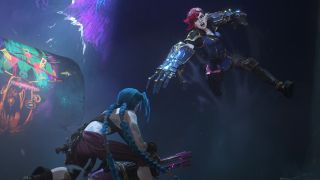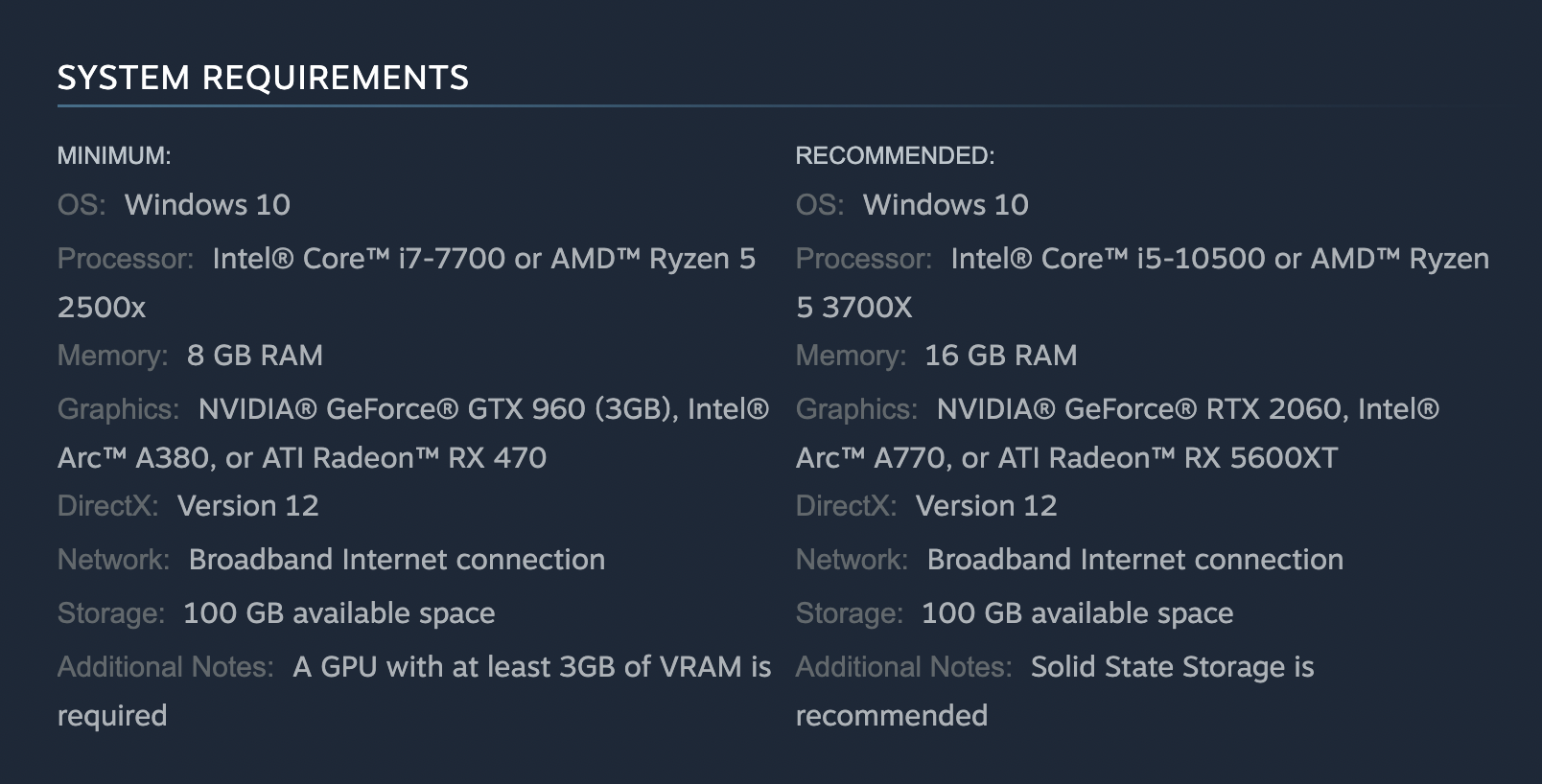
I love . Just ask anyone who's listened to me wax lyrical – with increasing regularity, some might say – about the history-making Emmy award winner since it made its debut in November 2021. With its predecessor ending on a stunning cliffhanger, the wait for has been excruciating.
However, as the saying goes, "good things come to those who wait", so I've constantly reminded myself that the three-year gap between seasons would be worth it. And it absolutely was. Having watched its first six episodes, I staunchly believe is a monumental artistic and narrative achievement that, its final three installments notwithstanding, is a near-perfect duology capper to Netflix, Fortiche Production, and Riot Games' first ( ) animated adaptation.
The hunt begins Season 2 begins mere moments after its forebear's dramatic finale. Jinx's (Ella Purnell) deadly attack on Piltover's council leaves three of its members dead, including Caitlyn's (Katie Leung) mom Cassandra, and many others, Viktor (Harry Lloyd) among them, severely wounded. As the council's traumatized leader Jayce (Kevin Alejandro) attempts to save Viktor's life and his fellow councillor/love interest Mel (Toks Olagundoye) mobilizes the rest of Piltover's scarred ministers to plan their next move, a grief-stricken Caitlyn takes matters into her own hands.
Establishing a five-member strike team that includes Jinx's estranged and guilt-riddled sister Vi (Hailee Steinfeld), Caitlyn leads her newly-formed squad into Zaun with three aims: capture Jinx, shut down production of the dangerous and addictive substance known as shimmer, and neutralize anyone still loyal to Zaun's recently deceased defacto leader Silco (Jason Spisak), such as Sevika (Amirah Vann). Succeeding won't be easy. Silco's death has ignited a civil war among Zaun's chem-barons, with gang bosses like Smeech (Lenny Citrano) taking advantage of the current power vacuum to try to become the undercity's new crime kingpin.
Caitlyn's squad, then, may have a hard time tracking down Jinx at such a tempestuous time. Plus, with Zaunites learning of Jinx's successful strike on PIltover's powerbrokers, Vi's younger sibling suddenly finds herself installed as a revolutionary figure they can rally behind – a development that'll make Caitlyn and Vi's mission even harder to accomplish. As a character-driven spectacle, 's main strength lies in its approach to compelling us to emotionally invest in each individual's journey.
It's not unlike HBO's in that respect, with the evolution – and, in some instances, de-evolution – and decision-making of its morally complex cast provoking viewers to frequently switch allegiances between them. Indeed, the war that erupts between Piltover and Zaun will flip audiences' devotion to some characters on its head, with Zaun's major players adopting more heroic roles early in season 2 and Piltover-based individuals positioned as 's new antagonists-in-chief. What struck me most, though, is how the overarching plot undergoes its own structural evolution.
Like season 1, episodes follow multiple storylines, with some converging to satisfyingly form conducive, singular narratives as season 2 progresses. However, each chapter's focus on specific characters – established members of its strong female contingent gifted even more agency than last season, or otherwise – lends them an unexpected yet gratifying individuality. Take episode 1, titled 'Heavy Is The Crown', for instance, whose narrative is anchored by a heartbroken and vengeance-fuelled Caitlyn.
Meanwhile, season 2's third episode, aka 'Finally Got The Name Right', sheds light on Ambessa's past, her reasons for traveling to Piltover, and the mysterious dangers that lurk in the shadows of her home nation Noxus. Then there's episode 4, named 'Paint The Town Blue', where Jinx learns of her symbolic position among Zaun's downtrodden populace that instigates her transition from villain to unlikely anti-hero. There's a natural, appropriate progression to most characters' season 1 arcs, too, with plenty of space devoted to exploring the vulnerabilities, desires, and newly-formed motivations that trigger 's so-called heroes to explore their dark sides, and vice versa with their supposedly villainous counterparts.
Season 2's exploration of additional subgenres is a welcome bonus, too. Whether it's the gradual evolution of Mel's storyline that becomes a conspiracy thriller-cum-supernatural horror, the slasher-style introduction of a and a , or the highbrow sci-fi aspects that punctuate Viktor's arc, season 2's genre expansion adds new storytelling dimensions and narrative weight that I didn't expect. If season 1 was a largely grounded story with fantasy and sci-fi elements weaved into it, its sequel is almost the complete opposite, especially once season 2 reaches its midway point.
Daring and in-demand dynamics 's final season is just as eager to introduce new character dynamics, too. Tense alliances Ambessa shares with Caitlyn and Singed, plus a three-pronged team-up between Jayce, Ekko, and Heimerdinger, make particularly engrossing viewing due to each character's wildly different backgrounds and upbringings. The inclusion of Isha (Lucy Lowe), a young girl Jinx saves from chem-baron Chross' goons, is equally fascinating, wit Isha's sibling-like idolization of Zaun's reluctant freedom fighter reminding me of Jinx's sisterly reverence of Vi in season 1's first act.
You shouldn't worry about previously established relationships being overshadowed by these new coalitions, either. For instance, there are plenty of captivating and heart-rending moments centered on 'CaitVi', the fandom's affectionate term for Caitlyn and Vi's 'will they, won't they' dynamic. Indeed, season 2 reunites them just 10 minutes into its premiere for a scene that offers the briefest insight into the compelling and explosive escalation of their romance-fuelled, melodramatic bond this season.
I'd advise you to make a mental note for a specifically 'CaitVi' moment in episode 3 that's not only been a long time coming but is also as crowd-pleasing and sensitively handled as you'd expect. Vi and Jinx's seemingly irreparable bond gets a striking amount of airtime as well. Outside of what teased, I don't want to ruin what's in store for the deuteragonists' shared storyline.
However, I will say it goes to some unexpected places and that viewers should anticipate numerous incendiary and tear-jerking scenes – some of which occur earlier than I'd foreseen – involving the iconic pair. I'm not afraid to admit that I cried, , during some emotionally charged scenes that . Similarly fraught but respect-laced bonds are also examined to varying degrees, including Jayce and Viktor's increasingly unprincipled partnership, and Jinx and Sevika's burgeoning odd-couple dynamic that juxtapose 'CaitVi' in histrionic and amusing ways.
Season 2 finds ample opportunities to devote more screen time to , too. Smeech, Piltover councillors Salo (Josh Keaton) and Shoola (Mara Junot), and another newcomer in Piltovan enforcer Maddie (Katy Townsend) feature enough to make me believe that their inclusion, and overall importance to the story, is worthwhile. Lore lessons and animated enhancements And what of 's Art Nouveau-inspired painterly animation style? Already mesmerizing to look at, season 2's rich visuals are not only more cinematic in scope but creatively ambitious in design.
Whether it's the somberness of the sketch-penciled backdrops that contrast the vivid colors of 'CaitVi' during Cassandra's funeral, episode 3's pop-art-influenced opening sequence, or visual flourishes like the vapor trails from Jinx's pistol spelling out 'Poow' in episode 2, Fortiche has dialed 's visual fidelity all the way up to 11. Fortiche's determination to refine every aspect of this show is further evidenced by its animated improvements. Season 1 was jaw-dropping, but its successor feels bolder and more innovative, especially from an action viewpoint.
Duels and large-scale battles – of which there are many, for anyone who felt the first season was lacking in physical confrontations – are more violent, heart-pounding, and breathtaking than before. Anime-inspired graphics energize some fights, such as Sevika's season 2 showdown with Smeech, in laugh-out-loud ways, too – honestly, the Sevika and Smeech bout is easily in my top three fights in it's inventively fun. Long-time fans will be very satisfied with 's attention to detail from a lore perspective as well.
Season 1 wasn't lacking in references to Riot's hugely popular game series – neither is season 2, with episode 5's game of tellstones one of myriad nods to – but its follow-up fleshes out this region of Runeterra in an engrossing manner. The expansion of 's mythology, particularly from Hextech, Hexcore, and Rune standpoints, is fulfilling for devotees and casual viewers alike. Elsewhere, confirmation about a long-standing rumor concerning Singed, coupled with intriguing glimpses into Vander and Silco's collective past, may rewrite some key aspects of Runeterran history and mythos, and go some way to .
Infatuated as I am with , I have a couple of minor gripes with this masterpiece of an animated show's final hurra. For one, its occasionally chaotic pacing leaves little room to deal with the fallout, or rekindling, of some relationships, nor does it find the time to fully examine the existential themes in its middle act. It's commendable that 's creators want to maintain consistency across the show's episodic runtimes.
The lack of self-indulgent plot exposition means viewers' intelligence is not insulted and episodes don't suddenly grind to a halt, too. Indeed, season 2's exposition dumps are kept to a minimum, with characters only filling in the narrative gaps where absolutely necessary. Still, periodically slowing things down a smidge, for non-plot expository reasons, wouldn't have been to season 2's detriment.
The abrupt discarding of some supporting characters is just as curious. Some viewers may not mind this, but I found it slightly galling that individuals like Sevika, Maddie, and another newcomer Loris (Earl Baylon), whose roles are seemingly pertinent to 's overarching plot, are side-lined at a moment's notice. I hope it doesn't continue, or is even pleasingly resolved, in season 2's final three episodes.
My verdict season 2 doesn't just cement the show's place as one of the ever created, but also as one of the greatest animated TV series of all-time. That's a bold claim to make but, if its final three episodes are as extraordinary as the rest, I'll be fully justified in suggesting as much. If – its creators , for what it's worth – I'd have even more evidence to back that up.
Netflix, Riot, and Fortiche can feel similarly vindicated in their fastidious approach to season 2's development. It may have taken over three years to make 's final season as good as it can be, but it absolutely shows. This is a once-in-a-generation TV series, created with real love and ambition, that tells an intelligent, meticulously crafted, and emotionally captivating story (one set to a ).
I don't think I'll see a show as ground-breaking as , nor one I'll worship as much, for a long time. Now, if you'll excuse me, I'm off to watch this two-season wonder, whose story is tailor-made to be streamed back-to-back, again..












